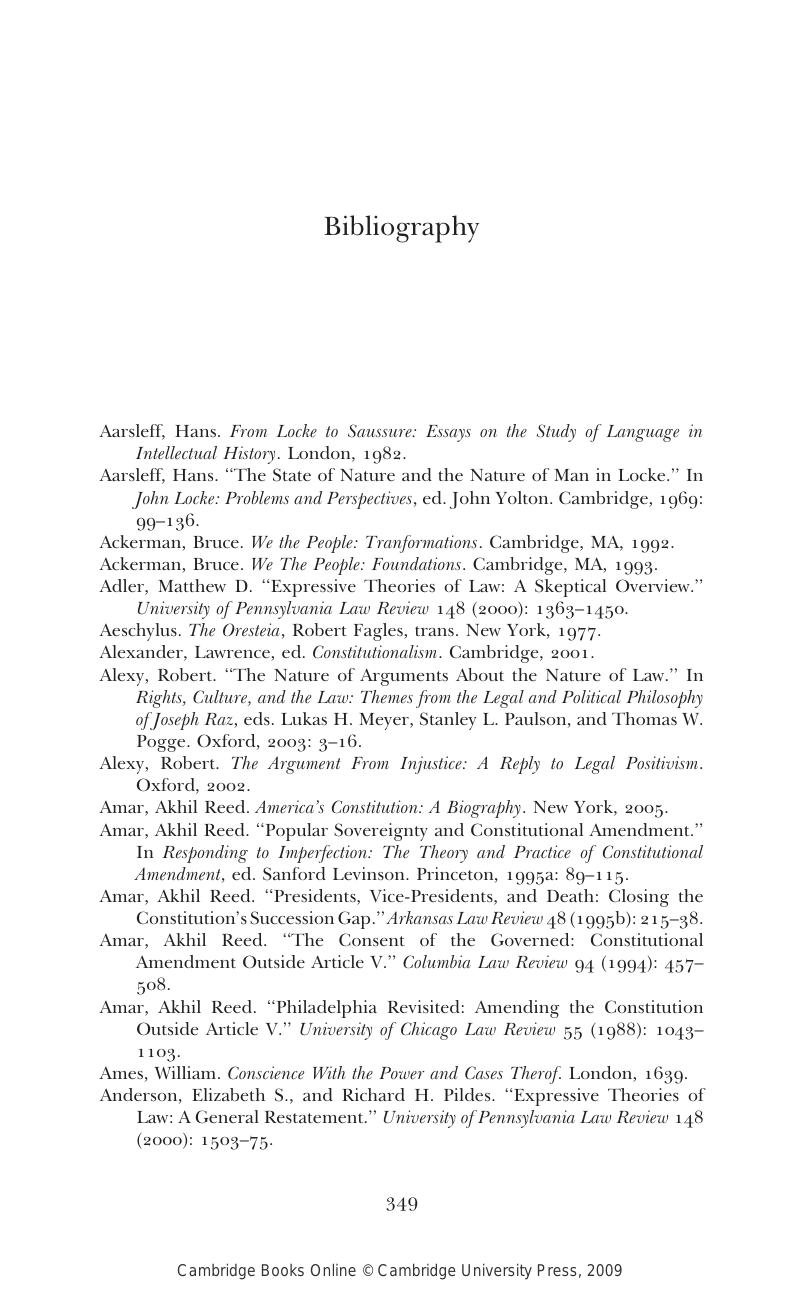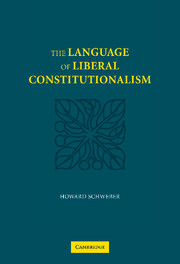Book contents
- Frontmatter
- Contents
- Introduction
- 1 The Search for Sovereignty: Law, Language, and the Beginnings of Modern Constitutionalism
- 2 Consent How? Challenges to Lockean Constitutionalism
- 3 Constitutional Language and the Possibility of Binding Commitments
- 4 Consent to What? Exclusivity and Completeness in Constitutional and Legal Language
- 5 The Question of Substance: Morality, Law, and Constitutional Legitimacy
- 6 The Defense of Constitutional Language
- Bibliography
- Index
- References
Bibliography
Published online by Cambridge University Press: 17 July 2009
- Frontmatter
- Contents
- Introduction
- 1 The Search for Sovereignty: Law, Language, and the Beginnings of Modern Constitutionalism
- 2 Consent How? Challenges to Lockean Constitutionalism
- 3 Constitutional Language and the Possibility of Binding Commitments
- 4 Consent to What? Exclusivity and Completeness in Constitutional and Legal Language
- 5 The Question of Substance: Morality, Law, and Constitutional Legitimacy
- 6 The Defense of Constitutional Language
- Bibliography
- Index
- References
Summary

- Type
- Chapter
- Information
- The Language of Liberal Constitutionalism , pp. 349 - 362Publisher: Cambridge University PressPrint publication year: 2007

